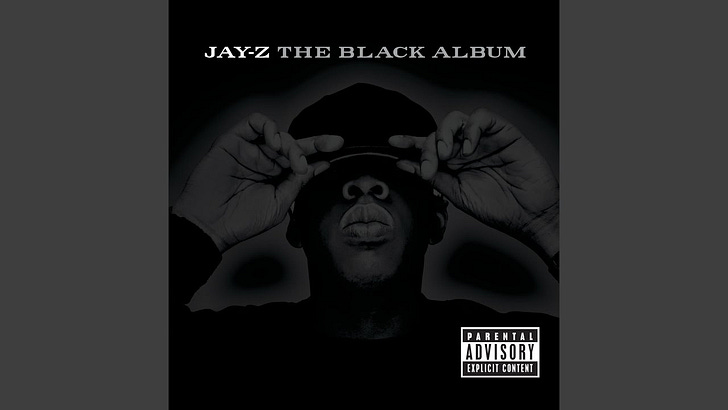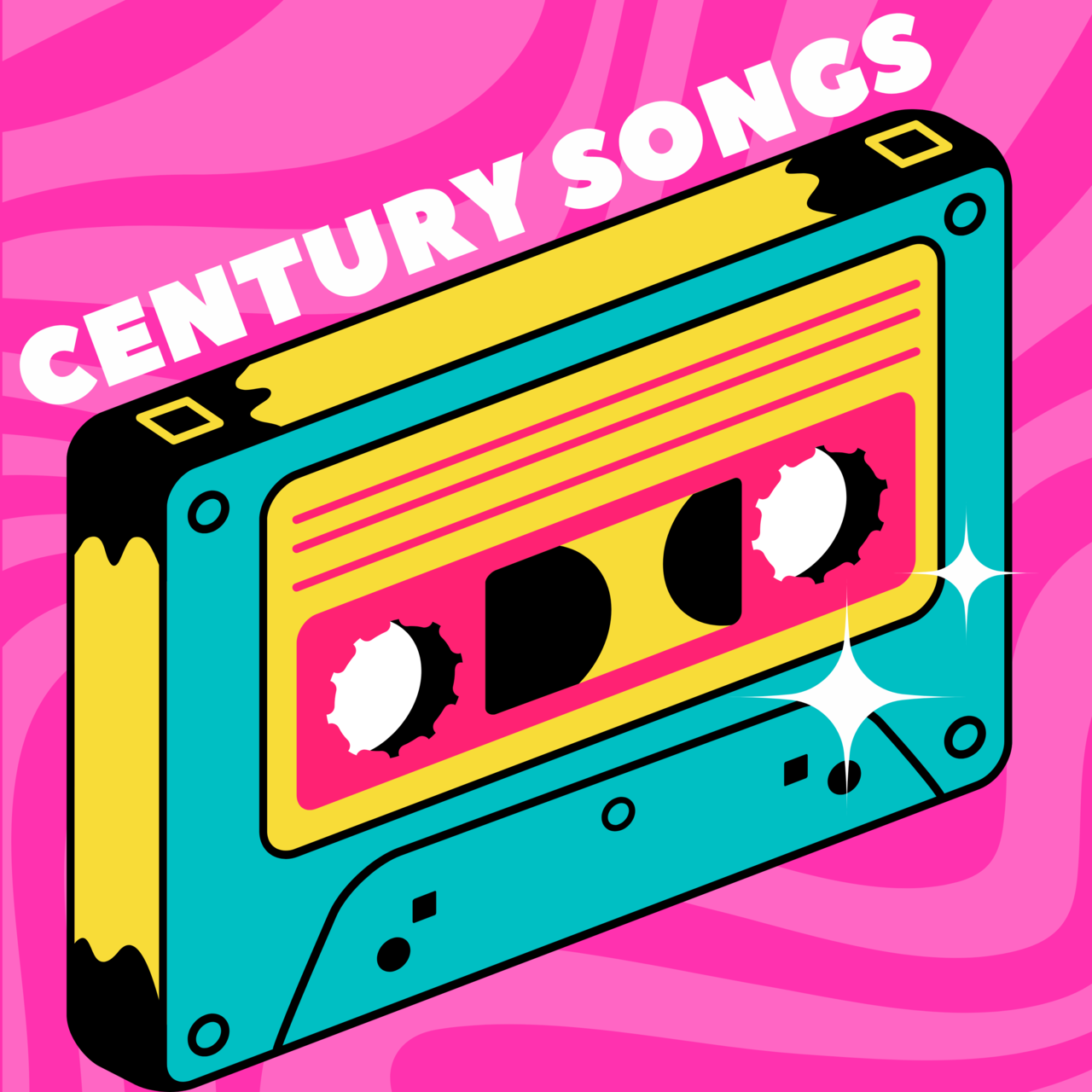JAY-Z, "Public Service Announcement (Interlude)"
The revolutionary t-shirt and two verses written from a personal crossroads
Century Songs is a deep dive into the songs that have meant the most to me in the 21st Century so far, 2000-present. The songs are not ranked, and I’ll be writing about whichever ones seem right that week. For an overview of the project, click here.
In 2003, Sean Carter was on top of the world. He was very publicly involved with (but not yet married to) Beyoncé, one of the biggest pop stars in the world. He had his clothing line, Rocawear, and was the first non-athlete in history to have a sneaker deal. He was collaborating with Shaq, and he was ushering in future megastars like Kanye West and Juelz Santana. He was also tired. The Black Album, which had begun as a thrilling street-level idea five years earlier, was billed as JAY-Z’s retirement album. It was, in his own words, a “perfect time to say goodbye.”
“Whenever a person tries to go and do different things, they condemn it as a sellout attempt,” he said back then, referring to his struggles with breaking away from the street persona he steadily and successfully built up since his 1996 debut Reasonable Doubt. The Black Album was to be a career-defining statement, but it was also intended to be a jumping off point; JAY-Z might be retired, but Sean Carter was just getting started. The business deals, the nightclubs, the sponsorships. “I’m not a businessman I’m a business, man,” he would famously boast, and 2003 was the same year he began his partial ownership of the New Jersey Nets before moving them to Brooklyn and those horrible grey hardwood courts.
At a pre-release listening party for The Black Album, JAY was approached by Elizabeth Mendez Berry of The Village Voice, who asked the rapper if he “felt funny” about wearing a Che Guevara t-shirt and an expensive necklace — a Jesus Piece, the same one the late Notorious B.I.G. used to wear — at the same time. The question surprised JAY, and while it bothered him at first, once he read her piece he started thinking about the juxtaposition from different angles. His response, which he managed to write and record with just enough time to get it onto the record without delaying its release, turned out to be one of his most beloved songs from this period.
First things first: I love Elizabeth Mendez Berry’s piece, “The Last Hustle.” It is well worth a read. Berry puts The Black Album into the context of JAY-Z’s career in a way that I don’t even think JAY-Z appreciated. “Though Jay-Z never steps out of character,” she writes, “he does the dancefloor ditty, the narco-nostalgia, the ego trip — he no longer seems entirely comfortable playing his role.” She paints a portrait of an artist at a crossroads, one who finds himself reckoning with a legacy he doesn’t feel connected to. She describes him as a hustler first and an artist second, and wonders if he will ever take that next creative leap. But even so, “Public Service Announcement (Interlude)” impressed her.
What I’ve taken away from the “revolutionary t-shirt” story over the last 20+ years is that people are, as JAY-Z will succinctly tell you, complex. That listening party wasn’t even the first time he wore the Che t-shirt; the same one can be seen during the recording of his 2001 MTV Unplugged album, and arguably appearing on MTV in 2001 is roughly as un-revolutionary as wearing a $10,000 Jesus Piece.
That reminds me: did you all know Total Request Live was rigged? In the late 90s, MTV launched a show aimed for children that showed a video countdown ostensibly programmed by the votes from viewers. But it turns out that this was more or less complete bullshit. It’s all broken down in detail on a recent episode on the excellent podcast Pablo Torre Finds Out: the producers and the network worked with labels to ensure that the right songs were put forth as options for voting, and those votes could be manipulated any way they needed to keep narratives moving. (Torre’s observation that Korn’s “Freak on a Leash” would eternally stall at #3 behind two different boy band videos is a hilarious observation of this phenomenon.)
I bring this up not because I think JAY-Z was aware of MTV’s gerrymandering of preteen votes (although he and Beyoncé did appear on the show the year before to perform their first collab, “’03 Bonnie and Clyde” and who knows what they talked about backstage) but because if we’re talking about a rich person’s understanding of democratic institutions — and what was TRL meant to be if not a democratic institution — one can almost forgive a certain level of disconnect from real struggle, real change.
So why the fascination with Che Guevara, the Marxist rebel of the Cuban Revolution whose likeness (specifically the Alberto Korda photograph Guerillico Heroico) has become coopted by every semi-reputable t-shirt company on the internet? In the indispensable autobiography/art book/lyrical breakdown Decoded, JAY-Z considers this:
“When someone asked me at the time of the Unplugged show why it was that I wore the Che T-shirt, I think I said something glib like, ‘I consider myself a revolutionary because I’m a self-made millionaire in a racist society.’ But it was really that it just felt right to me. … There are rappers like Public Enemy and Dead Prez who’ve always been explicitly revolutionary, but I wasn’t one of them. I also wasn’t a Marxist like Che — the platinum Jesus piece made that pretty clear.”
It wasn’t politics or even history that drew JAY to Che, it was much more personal than that. He notes that Che had asthma and played sports as a kid, just like he did. “For any image or symbol or creative act to mean something, it has to touch something deeper, connect to something true,” he wrote. Che was a man of many contradictions and failures, but his struggle came from being in a place JAY recognized growing up poor and learning to hustle in Brooklyn. So when Elizabeth Mendez Berry confronted JAY-Z about his own contradictions at that Black Album listening party, the reflection led him to lay down a couple of verses on “Public Service Announcement (Interlude).”
“PSA” is a relatively brief track, just two verses, clocking in under 3 minutes. After a brief introduction by JAY and producer Just Blaze, the first verse kicks in with what, as JAY himself describes in Decoded, “a variation on a story I’ve been telling since I was ten years old rapping into a tape recorder: I’m dope. Doper than you.”
“Allow me to re-introduce myself
My name is Hov, OH, H-to-the-OV
I used to move snowflakes by the O-Z”
Even in his relatively straightforward braggadocio, which connects the dots from his younger street hustle days to the corporate empire he had been building since Reasonable Doubt, there’s a fascinating structure at work. JAY compares “PSA” to a sonnet, and while I don’t think that’s technically accurate from a former English major perspective, there is something structurally going on with the track. No chorus, no bridge, just a heavy, foreboding bass and a menacing organ riff (both of which come from the 1968 song “Seed of Love” by Chicago garage rock band The Little Boy Blues) and two verses that force JAY to tighten up his approach and work within his self-imposed confines, even while he still gets to drop references to rap classics gone by, like The D.O.C.’s No One Can Do It Better.
Then, we get to the second verse:
“I’m like Che Guevara with bling on — I’m complex
I never claimed to have wings on n— I get my
By any means on whenever there’s a drought
Get your umbrellas out because
That’s when I brainstorm”
Like the first verse, it’s a simple message: JAY’s pairing of the t-shirt with the Jesus Piece is a contrast, one that doesn’t even necessarily make sense. In the very same breath he invokes Malcolm X’s “By Any Means Necessary” speech, doubling down on revolutionary leaders, but still he keeps the focus on himself. JAY embraces that contrast, that complexity. “I’m innocent because I didn’t invent the game; the game came to the hood via a bunch of people from the outside.” The street hustlers didn’t cause the poverty and hopelessness that leads kids to that lifestyle, but “there’s a point where I’m not so innocent anymore.” Just as Che’s methods can call into question everything he was supposedly fighting for, JAY knows his past hangs around his neck as heavy as any jewelry.
“No matter where you go
You are what you are player
And you can try to change but that’s just the top layer
Man, you was who you was ’fore you got here
Only God can judge me, so I’m gone
Either love me, or leave me alone.”
I think what I love about this track, and about The Black Album overall, is hearing JAY-Z wrestle at that crossroads between who had been and who he was becoming. In Decoded he writes: “Identity isn’t a prison you can never escape, but the way to redeem your past is not to run from it, but to try to understand it, and use it as a foundation to grow.” “You was who you was ’fore you got here.” We remain the sum total of our choices, our experiences, our environments, our influences. That same kid with asthma in Brooklyn is still inside of Sean Carter, musician, producer, entrepreneur, (former) NBA owner.
The Black Album would not, in fact, mark the occasion of JAY-Z’s retirement, from rapping or anything else. He immediately followed it up with a second collaborative album with R Kelly (yikes) and a remix album with Linkin Park* at the height of the mash-up album trend. And then there was Kingdom Come, which was… fine, and the soundtrack/companion album to Ridley Scott’s American Gangster, which was probably the proper “comeback” album a mere four years later. “I used to give a fuck, now I give a fuck less / What do I think of success? It sucks, too much stress.”
*As good as Collision Course is, real heads know Danger Mouse’s The Grey Album, which mashes up The Black Album with tracks from The Beatles’ White Album is where it’s at.
Should JAY-Z have actually retired from rap in 2003 and stuck to his business ventures? Hard to say. If he had, we wouldn’t have gotten huge guest verses on Kanye and Beyoncé albums, Watch the Throne (which I will 100% be writing about at some point), 4:44 (which is probably underrated!), or “Run This Town.” But when it comes to putting statement albums into the context of a career, the non-retirement retirement album loses some of its luster. But even if “Public Service Announcement (Interlude)” wasn’t JAY’s final word, it was a hell of a statement, summing up a complex persona in two verses that do more to define a career than anything else could have.
Next Week: What if they just built the whole song out of guitar solos?




